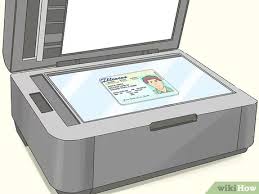Can Fake IDs Be Detected? A Comprehensive Guide to Identification Detection Methods
In today’s digital and physical landscapes, the question “Can fake IDs be detected?” is increasingly relevant. Whether it's online identity verification or traditional methods, detecting fake IDs has become a crucial concern for governments, financial institutions, and private businesses alike. In this article, we will explore how fake IDs are detected, the technology behind these detection methods, and why identifying fake identification is more important than ever.

What Is a Fake ID?
A fake ID refers to any form of identification that has been altered or fabricated with the intent to deceive. This can range from a falsified driver’s license to a counterfeit passport or even digital IDs used for online identity verification. Fake IDs are often used in fraudulent activities, underage drinking, illegal immigration, and financial fraud.
How Can Fake IDs Be Detected?
Now, let’s dive into the main question: Can fake IDs be detected? Yes, they can. Here are several methods used to detect them:
1. Physical Inspection
This is one of the most basic but effective methods for detecting fake IDs. Trained personnel can identify inconsistencies in the physical properties of an ID card. Features like the quality of the material, font inconsistencies, and the alignment of holographic elements can all serve as indicators of a fraudulent ID.
2. Hologram Verification
One of the more sophisticated methods involves checking for security features such as holograms, microtext, and ultraviolet (UV) elements. Many governments use holograms on official documents that are difficult to replicate. Fake IDs often fail to mimic these complex designs, making hologram verification a popular tool in the fake ID detection process.
3. Barcode Scanning
Many modern IDs come with a barcode or a magnetic strip containing encoded information about the individual. Scanning the barcode can reveal inconsistencies between the encoded data and the visible information on the card. If the scan fails or returns mismatched data, it is a strong indicator that the ID is fake. This method is especially effective for verifying government-issued IDs and is widely used in retail environments and security checkpoints.
4. Facial Recognition Technology
With the rise of digital identity verification, facial recognition technology is now a powerful tool in detecting fake IDs. By comparing a live photo of the individual to the photo on their ID, businesses and institutions can detect whether the person presenting the ID matches the individual it was issued to. Facial biometrics has become a popular way for banks and online services to ensure that they are dealing with genuine individuals and not identity thieves using fake documents.
5. Advanced Machine Learning Algorithms
The most advanced ID verification systems today leverage machine learning to detect fake IDs. These algorithms can analyze thousands of features on an ID in real-time, providing highly accurate results. The more data the system is exposed to, the better it becomes at detecting fraudulent patterns.
6. Human Intervention
While machines play a critical role in fake ID detection, human expertise is still invaluable. Trained professionals can spot irregularities that even the most sophisticated systems may miss. When combined with technology, human oversight significantly improves the chances of catching a fake ID.
Long-Tail Keywords and Related Searches for Fake ID Detection
In addition to the main keyword, Can fake IDs be detected, it's essential to focus on long-tail keywords for better SEO. These keywords help address specific queries and can attract a targeted audience. Here are a few examples:
- How do fake IDs get detected in airports?
- Can fake IDs pass online identity verification?
- Best tools to detect fake IDs for businesses
- What security features do real IDs have that fake ones don’t?
- Can barcode scanning detect all fake IDs?
These long-tail keywords serve to guide users searching for more detailed, niche questions around the broader topic of fake ID detection.
Why Is Fake ID Detection So Important?
The ability to detect fake IDs is critical in maintaining public safety, financial security, and legal integrity. For businesses, fake ID detection protects against fraudulent transactions and helps in adhering to Know Your Customer (KYC) regulations. For governments, the detection of counterfeit documents is essential in fighting against illegal activities such as underage drinking, illegal immigration, and even terrorism.
Conclusion
So, can fake IDs be detected? The answer is a resounding yes. With advanced technology such as machine learning, facial recognition, and traditional methods like hologram verification and physical inspection, it is now more challenging than ever for fraudsters to pass off a fake ID as genuine. Whether you're a business owner looking to protect your interests or an individual curious about how fake IDs are detected, it's clear that modern detection methods are highly effective.
FAQs on Fake ID Detection
- How do police detect fake IDs?
- Police often use barcode scanners, UV light, and hologram verification to spot fake IDs.
- Can fake IDs be detected by scanning?
- Yes, scanning barcodes or magnetic strips can reveal inconsistencies, making it an effective detection method.
- Is it possible to create an undetectable fake ID?
- With the advanced technologies available today, creating an undetectable fake ID is extremely difficult.
By understanding how fake IDs are detected and the methods used, businesses and individuals can better protect themselves from fraud and other risks associated with fake identification.

